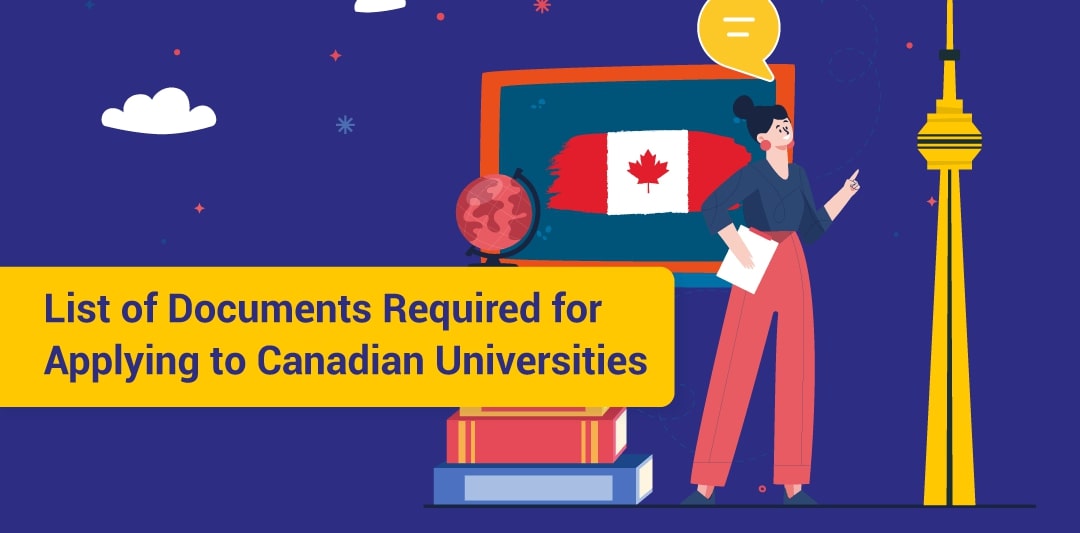This is a checklist for admission to a Canadian university and study permit application for Bangladeshi Applicants. It is based on my experience and may not be applicable to everyone. I hope it helps you in some way.
Admission to a Canadian University:
1. English Proficiency Test:
- Register for the IELTS exam, ensuring it’s well in advance of application deadlines. Online IELTS is more convenient and easier in my opinion.
- Attend preparation classes or self-study to ensure a competitive score.
- Take the exam and retrieve the IELTS score report.
2. Academic Documents:
- Request your Provisional Certificate and Transcript from your undergraduate institution.
- Secure and verify all original documents for O Levels, A Levels, or equivalents.
3. Statement of Purpose (SOP) for university:
- Conduct thorough research about your chosen course and university.
- Compose a compelling SOP that stands out.
- Revise and proofread the SOP multiple times or seek professional help.
4. Payment Preparations:
- Research and choose a bank offering an international payment card with minimal fees. Try EBL, BRAC or City Bank.
- Visit the bank and apply, making sure to keep all documents handy.
- Once received, activate, and endorse your passport with the card for international transactions.
5. University Selection:
- Explore the IDP website, taking note of entry requirements, course content, and faculty credentials.
- Shortlist around 3-5 universities, prioritizing those aligning with your goals.
6. Recommendation Letters:
- Approach professors or individuals who know your academic/professional capabilities well.
- Offer guidance on the content, focusing on your strengths, achievements, and potential.
- Check in periodically to remind them of the submission deadline.
7. University Application:
- Familiarize yourself with each university’s specific application process.
- Gather required documentation and fill out the application meticulously.
- Look into potential scholarships, grants, and assistantship opportunities.
8. Post Acceptance:
- Once admitted, promptly confirm your acceptance by the given deadline.
- Review any requirements like initial deposits or course preparations.
9. Payment and Banking:
- Identify a reputable bank to open a student file account.
- Obtain university payment details and transfer the necessary fees.
- Retain all transaction records and confirmation receipts such as SWIFT copy. Retrieve a payment acknowledgment from the university.
Canadian Study Permit (Visa) Application:
10. SOP for Visa Officer:
- Emphasize genuine intentions of studying and returning post-study.
- Address concerns proactively, like financial capabilities or ties to the home country.
11. Financial Documents:
- Approach your bank for recent solvency and account statements. These documents are usually required for the last 6 months and are valid for 15 days since the date of issue.
- Ensure your sponsors have sufficient funds and can prove their financial capacity. Currently, the recommended liquid asset is tuition fee + board and lodging for the duration of the course, which is around 60 lakhs BDT for a 2-year program. For fixed asset make your sponsor’s net worth at least 2 crore BDT.
- If your sponsor is a business owner, include the business documents and tax returns.
- If your sponsor is a salaried employee, include the employment documents and tax returns. If your sponsor has a provident fund, include the PF statement.
12. Property Documents:
- Make copies of all the propert documents, including the deed, mutation, and tax receipts. If you’ve any properties rented out, include the lease agreement and rent receipts.
13. Identification Documents:
- Ensure all IDs and passports are valid and not close to their expiration date. minimum 6 months validity is recommended.
- Get high-quality photos following visa specifications. 35x45mm, white background, matte finish, and no glasses.
14. Asset Evaluation:
- Consult reputable CA Firms with experience in international student evaluations.
- Ensure the affidavit is comprehensive and reflects a strong financial position.
15. Police Verification:
- Visit the local police department’s website to initiate the verification process.
- Follow guidelines strictly to avoid any delays. Get a copy of your passport attested by a gazetted officer.
16. Medical Examination:
- Find a Canadian-approved health center.
- Schedule and complete the upfront medical test. You’ll need to bring prescription for all the medicines you’re taking and drink a lot of water before the test.
17. Financial Explanation:
- Detail how you’ll fund your education without financial distress.
- Clearly demonstrate a well-planned budget and funding source.
18. Miscellaneous Documents:
- Ensure all additional documents are current and valid such as birth certificates, COVID-19 vaccination certificates, etc.
- Get translations and notarizations as required.
19. Document Review:
- Opt for agencies with a strong reputation and prior success.
- Address any concerns or suggestions they might have.
20. Digital Preparations:
- Use a high-quality scanner for clear, legible copies. Avoid mobile apps. There are some file size restrictions for online applications keep that in mind.
- Organize digital files methodically for easy access.
21. IRCC Application:
- Study guidelines for each form to ensure accuracy. Fill up the forms IMM 1294, IMM 5645 and IMM 5257.
- Keep track of all login credentials and application IDs.
- Submit the application and pay the fees with your own card.
22. Biometrics:
- Once notified, schedule the biometrics appointment promptly with the nearest Visa Application Center (VAC).
- Ensure you carry all the required documents to the appointment. You’ll need to bring all of your passports, biometrics instruction letter, payment receipt, VAC appointment letter, and 2 copies of your passport. I’d recommend buying the VFS Global Premium Lounge service for a hassle-free experience if you see huge queues in the VAC.
Lastly, always remember to keep backups of all documents and correspondence. Regularly check your email (including spam/junk folders) for any communication from universities or Canadian authorities.


